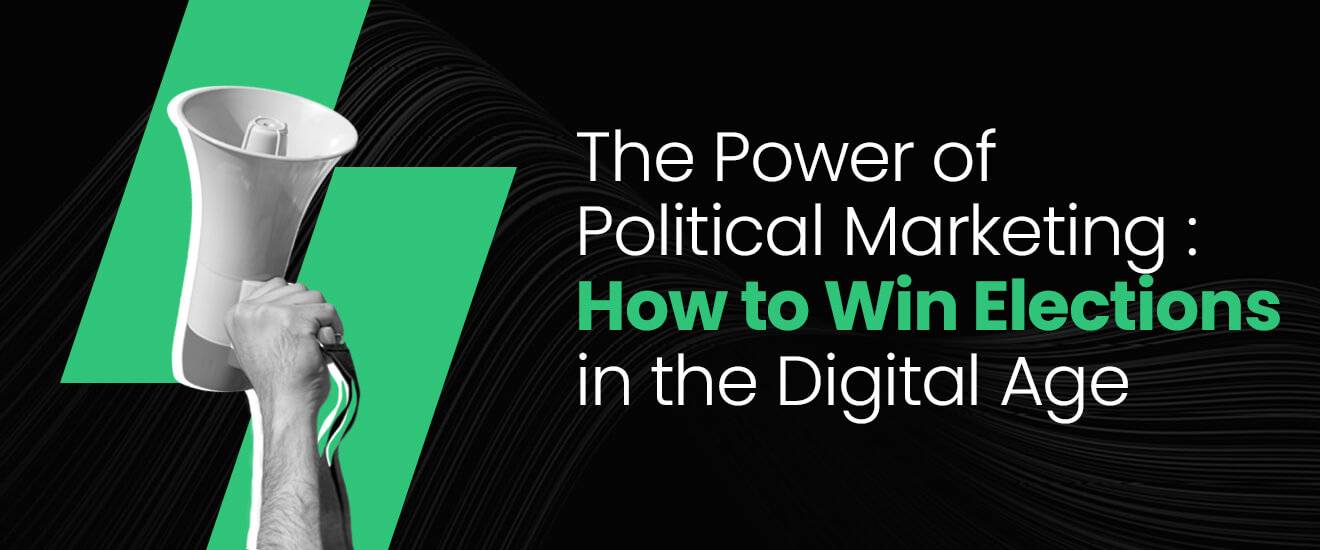In today’s rapidly evolving digital landscape, political marketing has become more crucial than ever for winning elections. Gone are the days when traditional methods like door-to-door canvassing and TV ads were the primary tools for political campaigns. While these methods still hold value, the advent of digital technologies and social media platforms has revolutionized the way candidates connect with voters. This article delves into the power of political marketing and how it can be leveraged to win elections in the digital age.
Understanding Political Marketing
Political marketing involves the application of marketing principles and techniques to promote political candidates, parties, or ideas. It encompasses a range of activities, including campaign strategy, voter research, message development, and media planning. The primary goal is to influence voter behavior and secure electoral victory. In the digital age, political marketing has expanded to include online platforms, social media, data analytics, and targeted advertising.
The Digital Transformation
The digital revolution has transformed the political marketing landscape in several significant ways:
1. Enhanced Reach and Engagement
Digital platforms enable political campaigns to reach a broader audience than ever before. Social media, websites, and email campaigns provide direct channels for candidates to engage with voters, share their messages, and respond to concerns. This direct engagement fosters a sense of connection and trust between candidates and their constituents.
2. Targeted Advertising
Digital marketing allows for highly targeted advertising, enabling campaigns to tailor their messages to specific voter segments. Platforms like Facebook, Google, and Twitter offer sophisticated targeting options based on demographics, interests, and online behavior. This precision ensures that campaign messages resonate with the right audience, increasing the likelihood of voter support.
3. Data-Driven Strategies
The use of data analytics has revolutionized political marketing. Campaigns can gather and analyze vast amounts of data to understand voter preferences, predict behavior, and tailor strategies accordingly. This data-driven approach helps in optimizing campaign resources, identifying key battleground areas, and crafting compelling messages that resonate with voters.
4. Real-Time Feedback and Adaptation
Digital platforms provide real-time feedback on campaign performance. Metrics such as engagement rates, click-through rates, and sentiment analysis offer valuable insights into how voters are responding to campaign messages. This feedback loop allows campaigns to quickly adapt their strategies, fine-tune their messaging, and address emerging issues.
Key Strategies for Winning Elections in the Digital Age
1. Develop a Strong Online Presence
A robust online presence is essential for any modern political campaign. This includes a well-designed website, active social media profiles, and a consistent content strategy. Candidates should regularly update their platforms with relevant information, campaign updates, and engaging content to keep voters informed and engaged.
2. Leverage Social Media
Social media platforms are powerful tools for political marketing. They allow candidates to communicate directly with voters, share their vision, and mobilize supporters. Effective social media strategies involve creating shareable content, engaging in conversations, and using paid advertising to reach a wider audience. Live streams, Q&A sessions, and behind-the-scenes content can also humanize candidates and build trust with voters.
3. Utilize Email Marketing
Email marketing remains a highly effective channel for political campaigns. By building a database of supporter emails, campaigns can send personalized messages, fundraising appeals, and important updates directly to voters’ inboxes. Email campaigns should be well-crafted, informative, and actionable to maximize engagement and support.
4. Implement SEO and Content Marketing
Search engine optimization (SEO) and content marketing are essential for increasing online visibility. Campaigns should create high-quality, informative content that addresses voter concerns and showcases the candidate’s platform. Optimizing this content for search engines ensures that it ranks well in search results, making it easier for voters to find and engage with the campaign.
5. Engage with Influencers and Advocates
Influencers and advocates can amplify a candidate’s message and reach new audiences. Partnering with influential figures who align with the campaign’s values can help in gaining credibility and expanding reach. These influencers can share campaign content, endorse the candidate, and mobilize their followers to support the campaign.
Conclusion
Political marketing has evolved dramatically in the digital age, offering campaigns powerful tools to connect with voters, build support, and win elections. By leveraging digital platforms, data analytics, and targeted advertising, political campaigns can enhance their reach, engagement, and effectiveness. Understanding and implementing these modern strategies is essential for any candidate looking to succeed in today’s competitive political landscape. As the digital world continues to evolve, so too will the tactics and techniques of political marketing, making it an ever-more vital component of electoral success.
 digital presence optimizations
digital presence optimizations Reputation Management
Reputation Management Influence and Authority Building
Influence and Authority Building Data-Driven Insights
Data-Driven Insights strategy building and execution
strategy building and execution Content Creation and Management
Content Creation and Management Multicultural Advocacy Planning
Multicultural Advocacy Planning Media Training and Public Speaking
Media Training and Public Speaking Reputation Management
Reputation Management Digital Presence Optimization
Digital Presence Optimization Data-Driven Insights
Data-Driven Insights Crisis Communication and Handling Strategy
Crisis Communication and Handling Strategy Customized Social Media Strategies
Customized Social Media Strategies Content Creation and Curation
Content Creation and Curation Brand Voice and Messaging
Brand Voice and Messaging Influencer Collaboration
Influencer Collaboration Reputation Management on Social Media
Reputation Management on Social Media Crisis Management on Social Platforms
Crisis Management on Social Platforms Social Media Analytics and Reporting
Social Media Analytics and Reporting Lead Generation
Lead Generation











